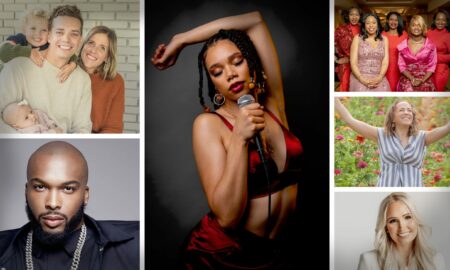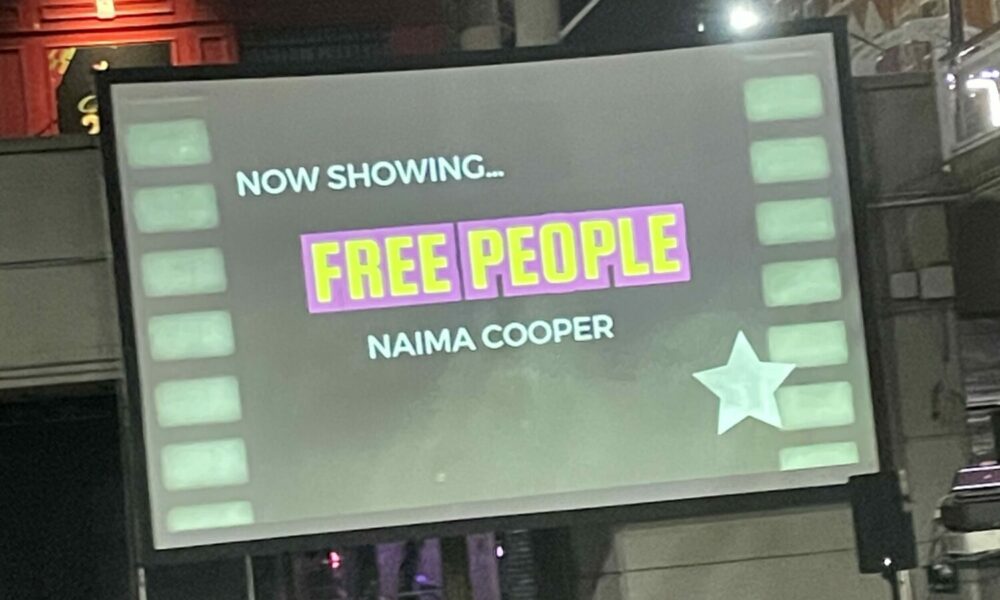

Today we’d like to introduce you to Naima Cooper.
Naima, we appreciate you taking the time to share your story with us today. Where does your story begin?
Ever since I was at least 12 years old, I’ve been drawn to filmmaking and writing. When I was going through depressive periods in my life and feeling sad, lonely, and misunderstood, watching coming-of-age and romance movies that I emotionally connected with comforted me, made me feel less alone, and gave me hope that things could get better. Journaling and writing stories made me feel like my feelings and thoughts were important and my ideas mattered whereas I otherwise felt insignificant. However, despite these experiences, I rarely explored filmmaking beyond creating a project for a class when I was growing up due to a series of limiting beliefs. I only recently began investing a lot more time and energy into my creative interests after graduating from college in May 2022. I didn’t realize it at the time, but while (unnecessarily) difficult, many of the classes and clubs I was involved in during college helped me begin to discover my voice. Since then, I’ve been making efforts to develop my writing and filmmaking skills and connect with people in Atlanta and beyond who I can learn from, support and who are doing similar things. So far, I’ve had my essays featured in Salty Magazine, my short documentary, Free People, that I completed in February of 2023, has since been screened with Audio_Video_Club, YAWP, and Village Skate Park ATL, and I’ve been interviewed by Seen Sex Ed. This is just the beginning of my journey, and I’m extremely excited for what’s to come.
Would you say it’s been a smooth road, and if not what are some of the biggest challenges you’ve faced along the way?
Like I mentioned, I had been interested in writing and filmmaking since I was very young, but I wasn’t able to bring myself to create much at all just for fun. I required the external validation of getting an A on an assignment and knowing my classmates would at some point be forced to watch my final product. I neglected this part of myself, and as a result, our connection fizzled out. I was only really able to initiate the reconnection after I had a mental breakdown my junior year of college. I could no longer keep living on autopilot and neglecting the things that really lit me up inside and made me feel alive. This was a huge step for me, abandoning my “Plan B” that always gave me a sense of security and taking that leap to really bet on myself and invest in my passions and my curiosities. While I’ve had a lot of little wins along this process of getting reacquainted with my creativity, it has not been an easy journey. I struggled a lot with my confidence, my relationship with money, time management, guilt, confusion, creative blocks, motivation, and the judgment, fear, and anxiety that come with pursuing a non-traditional path while also having financial responsibilities. I’ve improved in many of these areas, but I still have a long way to go. I’m hoping that I will develop all of the tools and necessary skills to make creating a sustainable and consistent part of my life that I continue to improve on and create things I’m proud of.
Thanks – so what else should our readers know about your work and what you’re currently focused on?
I am a writer, filmmaker, and black feminist. A lot of my work is focused on questioning the white supremacist, capitalistic, and misogynistic conditioning forced on us all at birth, unlearning that garbage, and relearning principles that actually honor all people’s humanity and create safe spaces for authentic self-expression. I’m really interested in exploring bold, taboo, and controversial topics like sex and mental health. I’m not interested in making things that are trendy. I really want to create things that shake people and make them reflect on their life, their choices, their conditioning, their thoughts, and their actions. Too many of us are just living on autopilot and never questioning the things we’ve been taught. I also want to remove the shame, judgment, and stigma around natural human responses to the inevitable trauma that occurs as a result of living in this society while occupying one or more marginalized identities. My goal with everything I create is to get at the root of the suffering that many oppressed groups experience and shed light on these issues so that we can improve our chances at achieving collective healing and liberation.
At the moment, the project I am most proud of would be my short documentary, Free People. I made this documentary at the very beginning of my journey, getting reacquainted with my creativity. I asked creatives that I admired for their commitment and consistent devotion to their creativity for some insight and advice about navigating the creative process. At the time, being a full-time creative seemed like an impossible task reserved for the delusional and irresponsible due to the external forces and conditioning I mentioned that are actively working against creative and authentic expression. However, the conversations I had throughout the process were grounding and inspiring, and I was glad to hear that the final product had similar effects on some people who watched it as well.
Currently, my friend Aminah and I are working on a short documentary titled “Sex Talk”. We will be interviewing around 20 people, the majority black femmes, about the things they learned about sex growing up, their past sexual experiences, things they wish they knew, and their hopes for the future. Our goal with “Sex Talk” is to de-stigmatize conversations around sex and pleasure, affirm our wide range of human experiences, educate, and inspire. We are hoping to complete this project by March 2024. I’ll be sharing updates about this project on my Instagram account @storiesbynaima, so be on the lookout!
Is there something surprising that you feel even people who know you might not know about?
I was a competitive gymnast for eight years. It taught me a lot about hard work and perseverance, but I ultimately fell out of love with it. I felt the time, energy, and money that was being spent could be allocated in better/more aligned ways. This was an extremely hard decision for 13-year-old me to make as I felt most of my identity was tied to the role of “gymnast” in my developing years. Not only was it terrifying to now have to discover a new identity at such a vulnerable age, but I would also disappoint my parents, teammates, and coaches, who had also invested their time and money into me and had hopes I’d pursue college gymnastics. Many people close to me did not support my decision to quit. However, while extremely difficult, I’m grateful that I was confronted with this situation in this way. I believe this was one of the first times I really listened to myself despite the pushback I would get from making an unpopular decision. I don’t regret my time as a gymnast. I gained many skills, physical and mental, that I believe will be useful to me for the rest of my life. However, I’m grateful that I was aware of when it was time to move on and didn’t remain in a situation that was no longer serving me despite external pressures. I think that a big part of being an artist is trusting your intuition, going against the grain, and not letting fear of the unknown keep you from going down a more aligned path.
Contact Info:
- Website: https://naimacooper.wixsite.com/mysite
- Instagram: https://www.instagram.com/storiesbynaima/
- Youtube: https://youtube.com/@storiesbynaima?si=T3f8ENZIoSBEl8yl
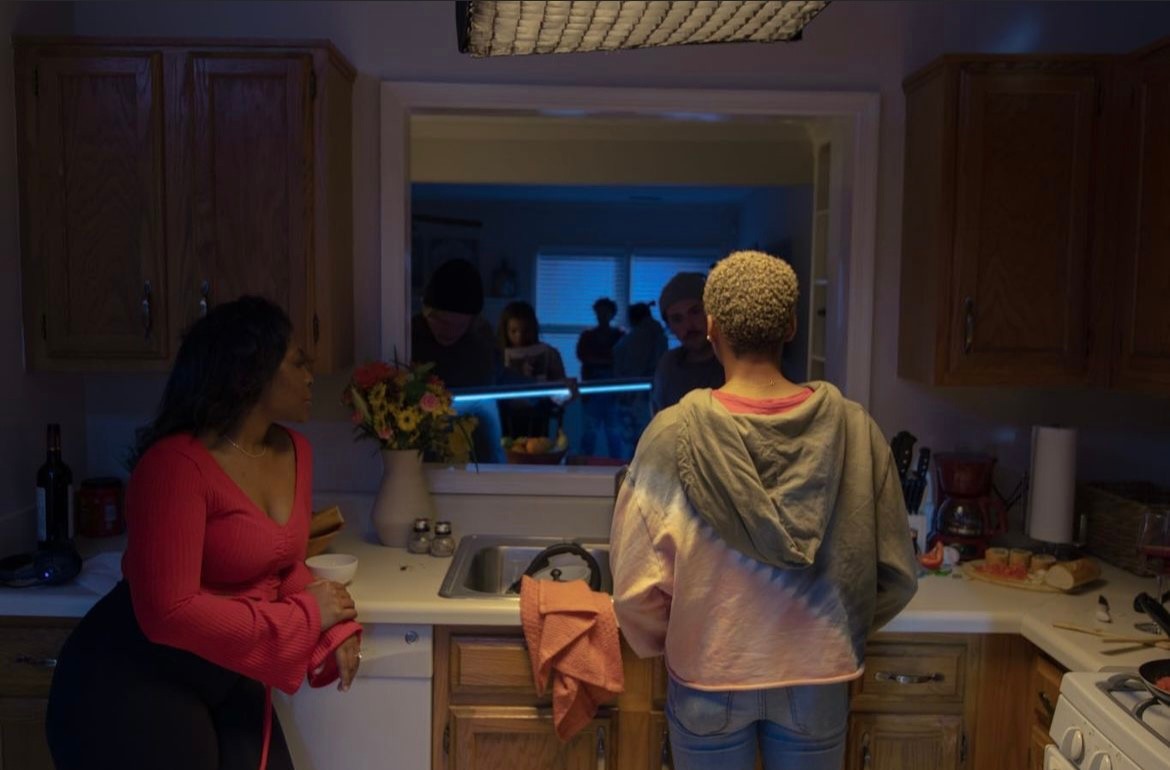
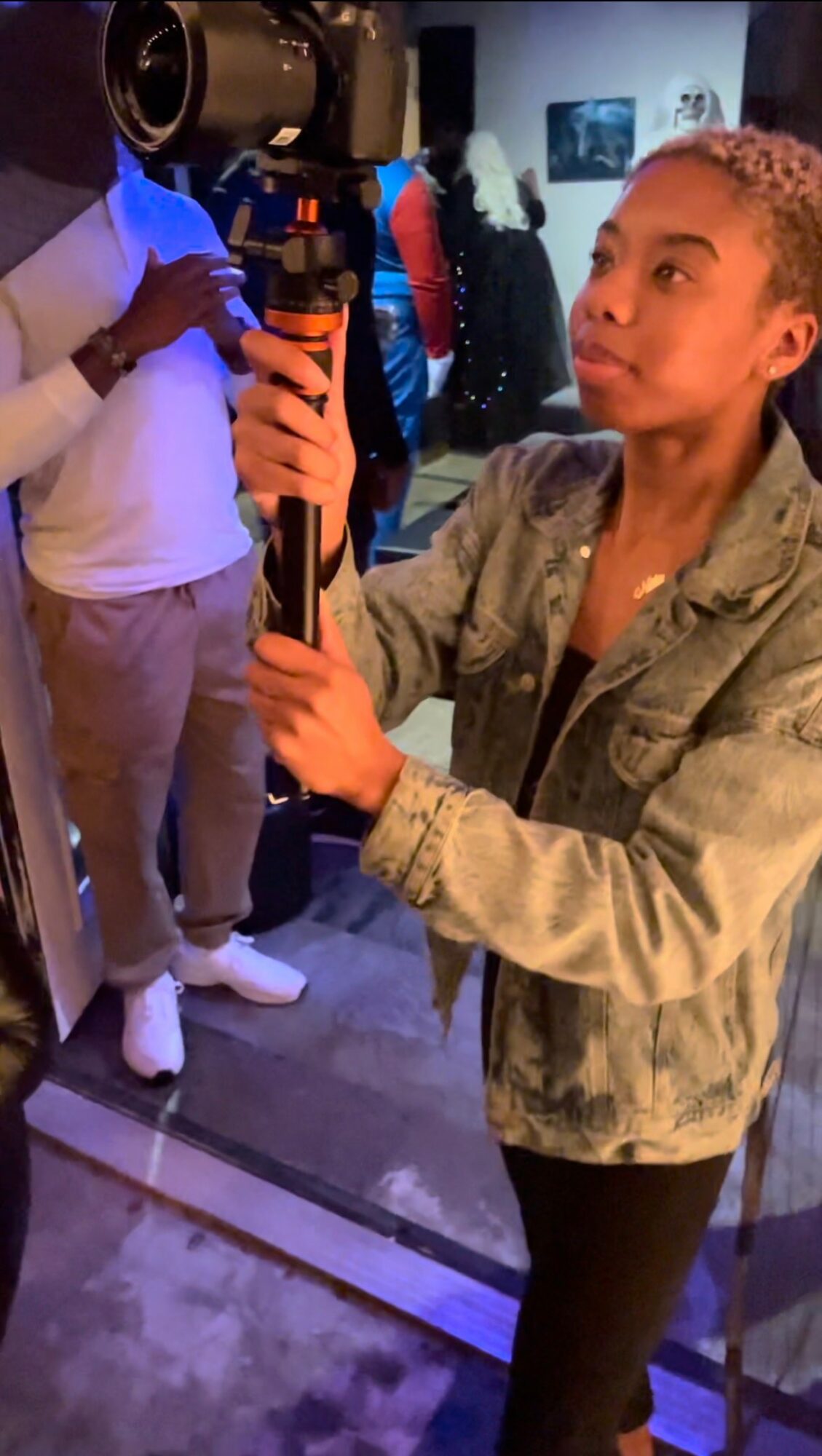
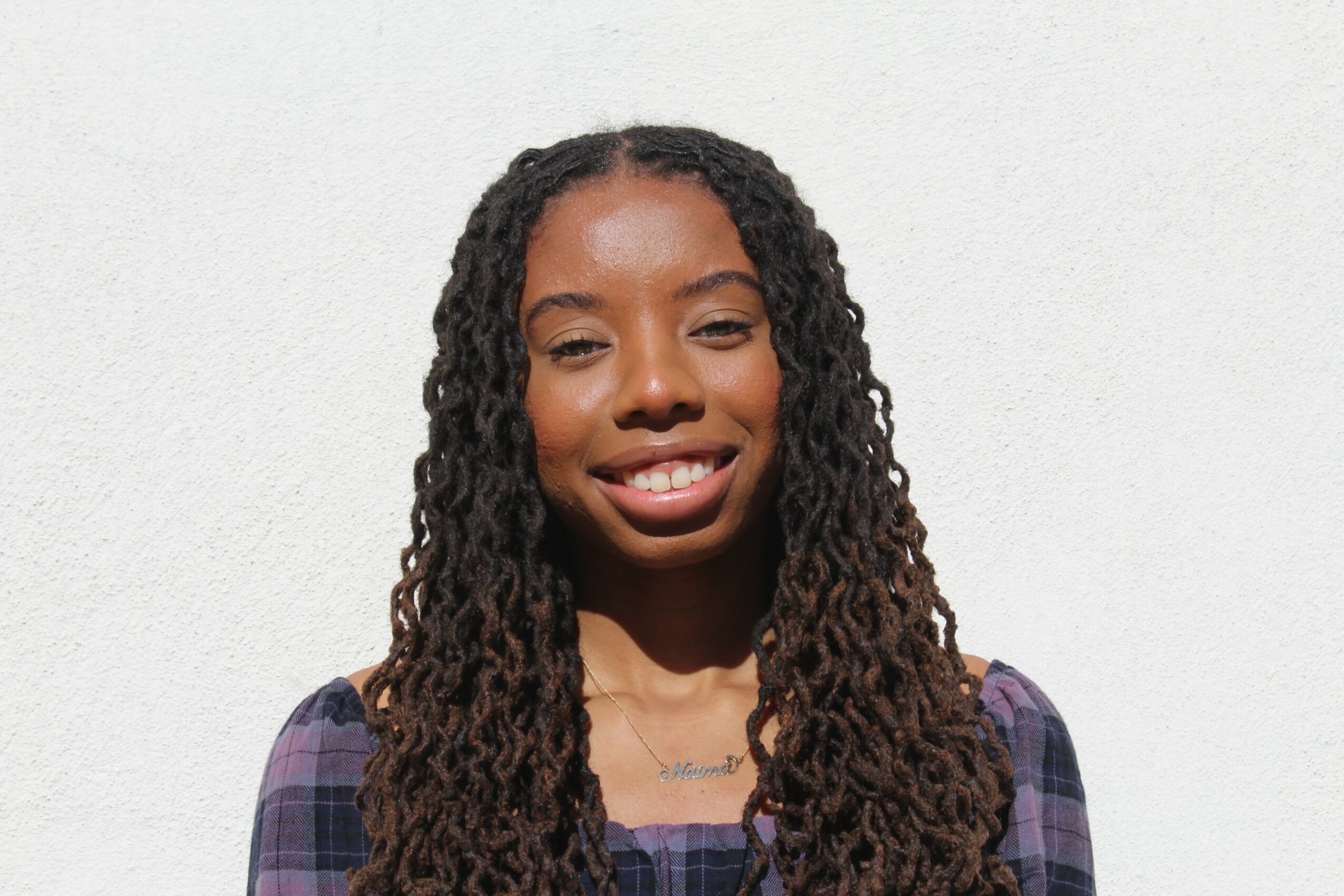
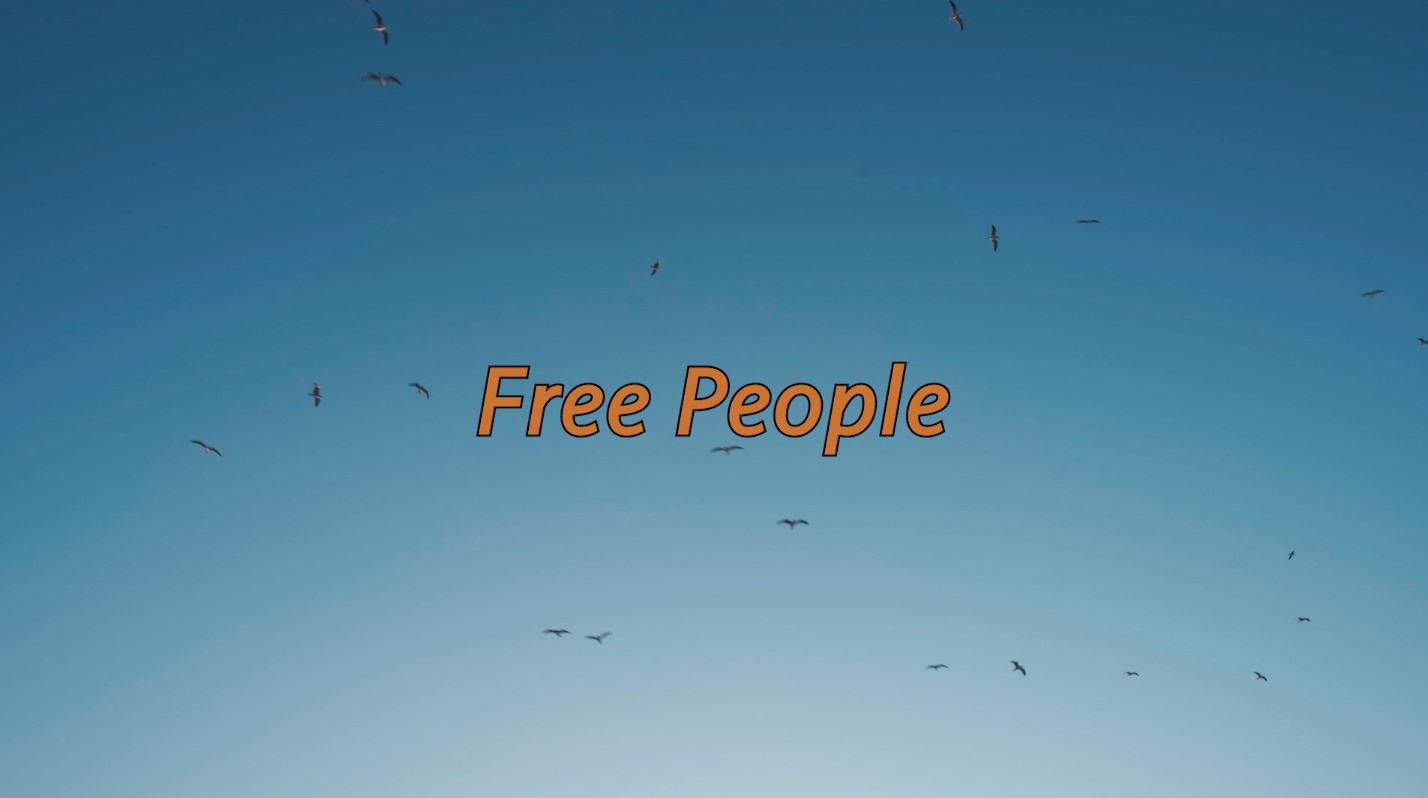
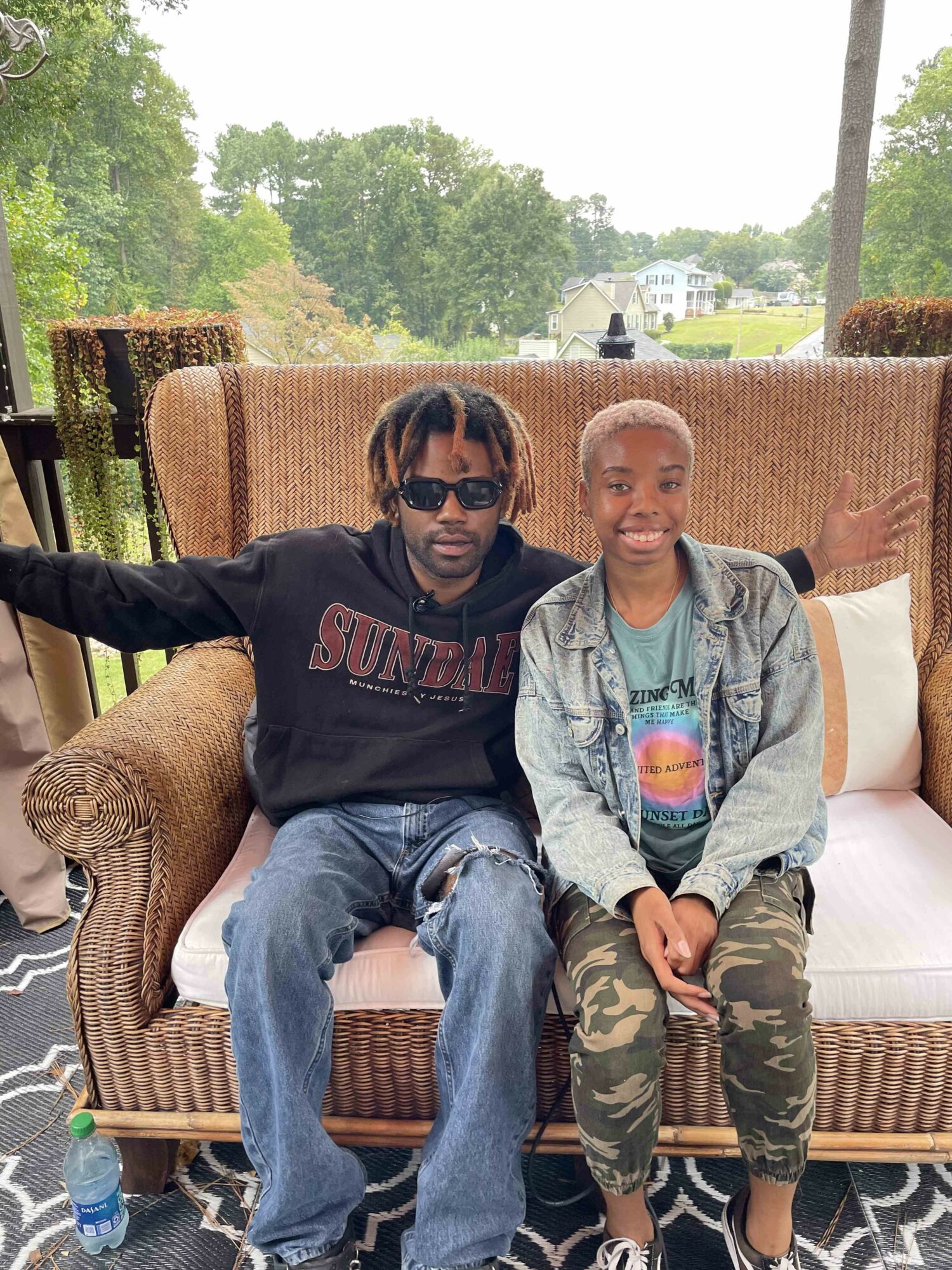
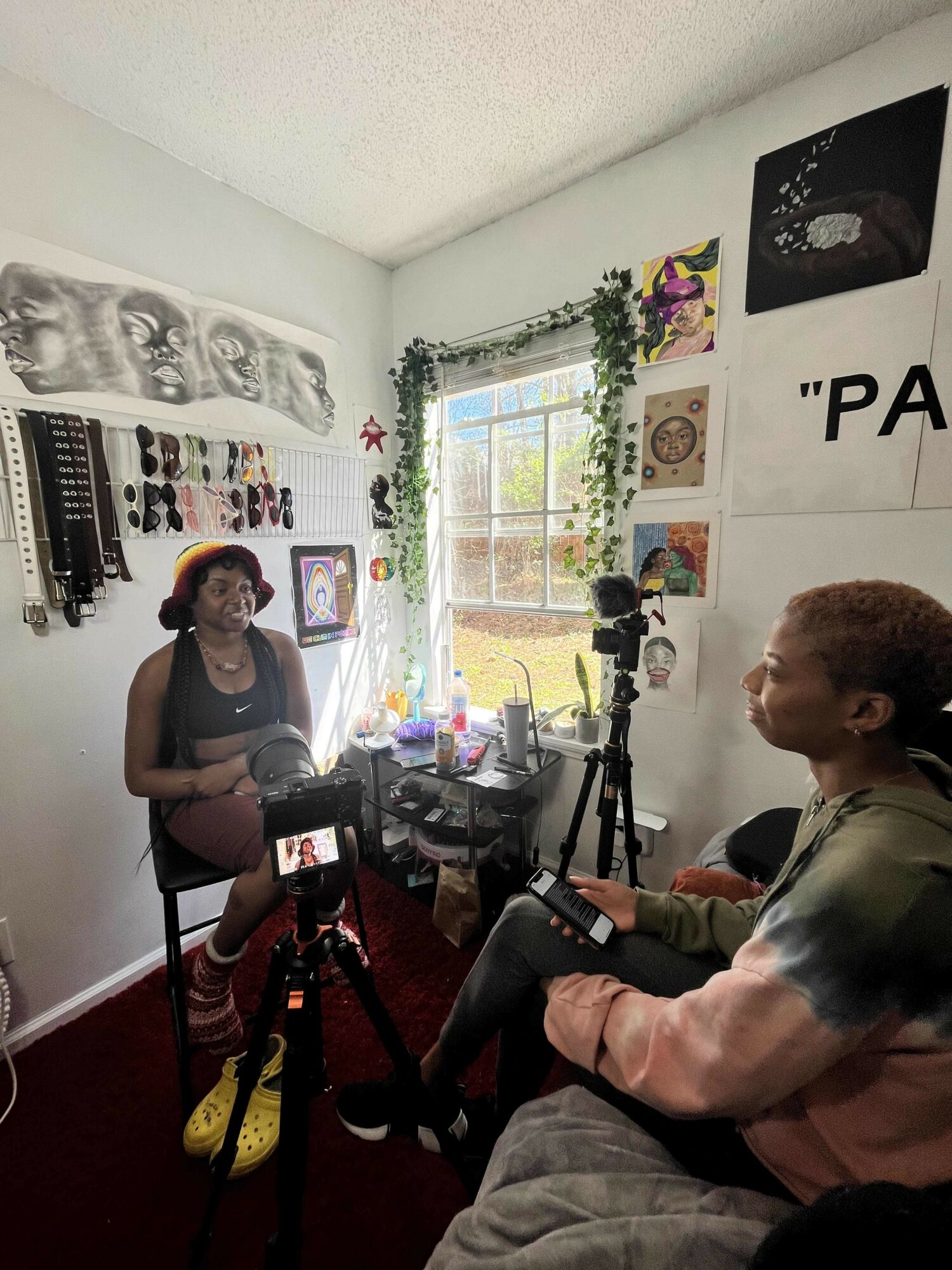
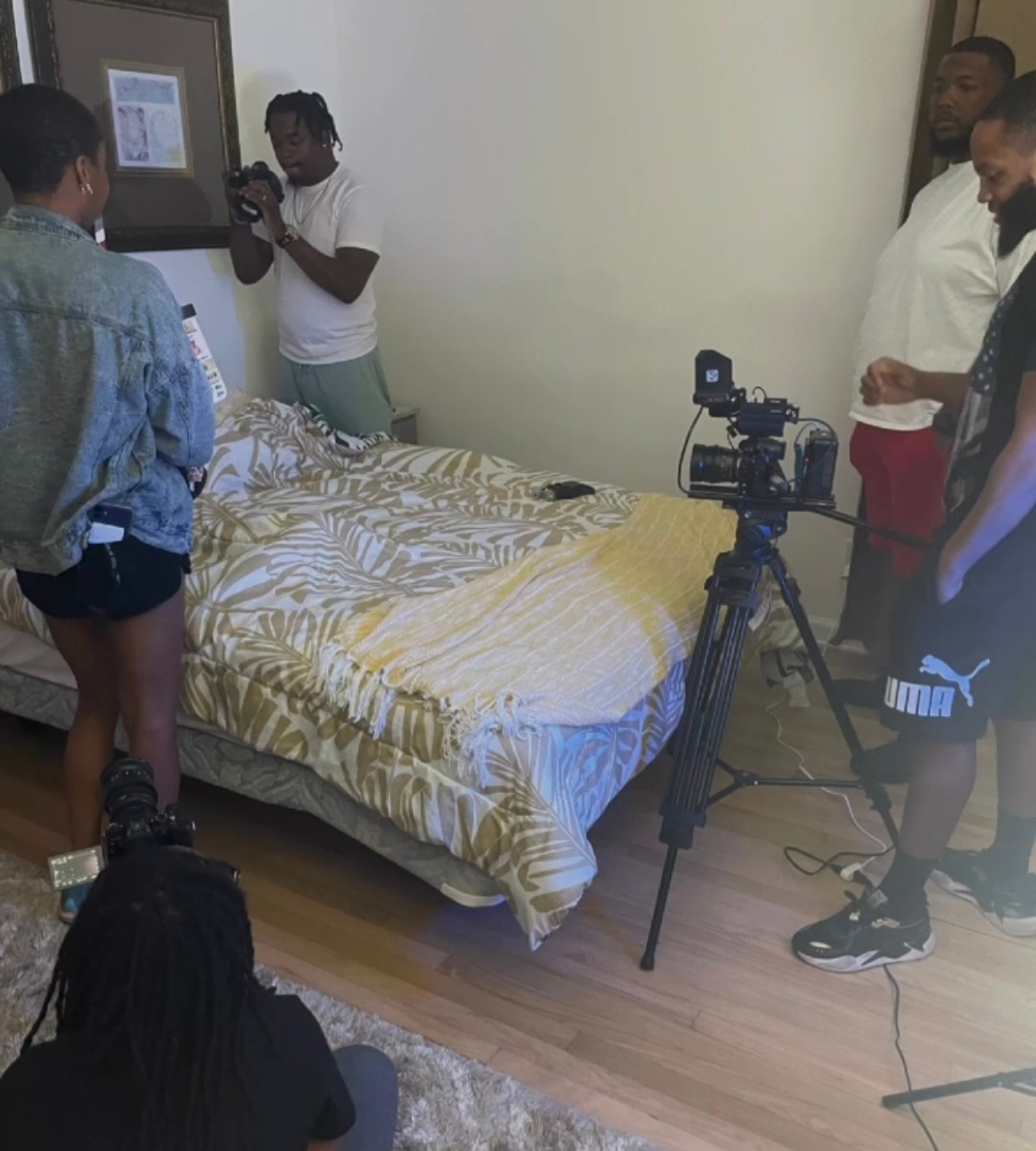 Image Credits
Image Credits
The picture of me turned around with the woman in red on my left was taken by Sirena Corrales.

